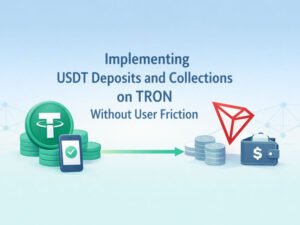The world of startup funding can seem as mysterious and otherworldly as distant galaxies—complex systems operating on principles that feel almost alien to newcomers. Yet beneath this seemingly impenetrable surface lies something surprisingly elegant and accessible. Blockchain technology, once considered an esoteric domain reserved for crypto enthusiasts, has emerged as a powerful catalyst transforming how startups worldwide access critical business funding. This digital infrastructure, with its decentralized networks and immutable ledgers, is reshaping grant application processes in ways that would have seemed like science fiction just a decade ago.
Traditional grant seeking has long resembled navigating a labyrinth blindfolded. Startups faced opaque processes, lengthy approval cycles, and intermediaries at every turn. Blockchain technology disrupts this paradigm entirely, introducing transparency, automation, and global accessibility that make funding opportunities more democratic than ever before. For entrepreneurs willing to understand this technology, the rewards extend far beyond simple funding—they gain access to ecosystems designed for innovation, credibility that opens doors worldwide, and operational frameworks that position them for sustainable growth.
This transformation matters because funding remains the lifeblood of startup success. The intersection of blockchain capabilities and grant mechanisms creates unprecedented opportunities for ventures demonstrating genuine innovation and social impact. As we explore how savvy startups leverage these tools, you’ll discover practical strategies, real-world examples, and actionable insights that demystify this evolving landscape.
Understanding Blockchain’s Role in Modern Startups
Blockchain technology fundamentally alters how startups operate and present themselves to potential funders. At its core, blockchain creates decentralized networks where information exists across multiple nodes rather than centralized servers. This architecture eliminates traditional intermediaries, reducing costs and increasing efficiency in ways that particularly benefit resource-constrained startups.
The transparency blockchain provides transforms credibility building. Every transaction, milestone, and operational decision recorded on blockchain becomes part of an immutable ledger—information that cannot be altered retroactively without detection. For grant applications, this creates verifiable proof of progress and integrity. Funders can examine a startup’s blockchain records and see authentic operational history rather than relying solely on self-reported claims.
Smart contracts represent perhaps blockchain’s most revolutionary contribution to startup funding. These self-executing agreements automatically trigger actions when predetermined conditions are met. Imagine grant funds programmed to release incrementally as your startup achieves specific milestones—no manual invoicing, no bureaucratic delays, just automatic disbursement when blockchain-verified achievements occur. This automation reduces administrative overhead while giving funders confidence that their capital deploys according to agreed parameters.
The global nature of blockchain networks particularly advantages startups operating across borders. Traditional international grant applications often stumble over varying compliance requirements, currency conversions, and jurisdictional complexities. Blockchain’s borderless architecture simplifies these challenges, enabling startups to maintain consistent records that satisfy diverse regulatory frameworks simultaneously.
The Rise of Blockchain Startup Grants
A new funding category has emerged specifically targeting ventures that harness blockchain’s potential. These L1 blockchain startup grants represent more than traditional financing with a technological twist—they embody a philosophical shift toward supporting innovation that could reshape industries fundamentally.
These grants manifest in several distinct forms, each serving different strategic purposes:
Government-backed initiatives recognize blockchain’s potential to modernize public services and drive economic competitiveness. Nations from Singapore to Switzerland have established programs funding blockchain startups working on everything from digital identity systems to transparent supply chains. These grants typically emphasize projects with clear public benefit and scalability potential.
Private and venture-backed programs come from established tech companies, blockchain foundations, and forward-thinking venture firms. These funders often seek startups that can expand blockchain adoption in specific sectors or develop infrastructure improving the entire ecosystem. The funding amounts vary widely but frequently include mentorship and network access alongside capital.
Industry consortium grants emerge from groups of companies within specific sectors—finance, healthcare, logistics—pooling resources to support blockchain solutions addressing shared challenges. These grants offer unique advantages because they connect startups directly with potential enterprise customers from day one.
Eligibility criteria for these opportunities typically emphasize several key factors. Innovation stands paramount—grants favor novel applications rather than incremental improvements. Technical merit matters significantly; funders want to see robust architectures and realistic implementation plans. Scalability potential distinguishes competitive applications, as does demonstrated social or economic impact. Projects addressing sustainability, financial inclusion, or supply chain transparency often receive favorable consideration.
How Startups Leverage Blockchain for Grant Applications
Smart startups don’t just use blockchain in their products—they integrate it throughout their operational framework to strengthen grant applications. This strategic integration creates compelling narratives that resonate with modern funders increasingly sophisticated about technology’s role in accountability.
Data transparency becomes a competitive advantage when your entire project history exists on verifiable blockchain records. Rather than compiling retrospective reports when grant applications require proof of progress, blockchain-enabled startups simply provide access to their immutable operational ledger. Funders can independently verify claimed milestones, expenditures, and achievements, dramatically increasing application credibility.
Automated reporting through smart contracts eliminates one of grant management’s most burdensome aspects. Traditional grants require extensive periodic reporting—financial statements, progress updates, compliance documentation. Blockchain-based startups program smart contracts to automatically log relevant data as operations proceed. When reporting periods arrive, required information already exists in verified, auditable form, saving countless hours while providing superior documentation quality.
Proof of concept carries greater weight when blockchain validates operational integrity. A startup claiming efficient processes or transparent governance can demonstrate these qualities through blockchain records showing actual performance. This evidence-based approach distinguishes serious ventures from those offering only promises and projections.
The funding workflow itself accelerates when blockchain enters the equation. Grant review processes traditionally involve manual verification of applicant claims—a time-consuming step that delays decisions. Blockchain records allow rapid verification, potentially reducing approval timelines from months to weeks. Fund disbursement similarly speeds up when smart contracts automate transfers upon milestone completion.

Global Examples of Blockchain-Enabled Startup Grants
Real-world applications demonstrate blockchain’s transformative impact on startup funding across diverse geographies and sectors.
North American Programs
The United States and Canada have launched multiple initiatives supporting blockchain innovation. Government innovation grants target fintech startups developing blockchain-based payment systems, digital asset infrastructure, and decentralized finance applications. These programs recognize blockchain’s potential to maintain North American competitiveness in financial technology. Successful recipients often combine technical excellence with clear regulatory compliance strategies, showing funders they understand both innovation and responsibility.
European Initiatives
The European Union has embraced blockchain as a tool for achieving sustainability goals. EU-backed innovation funds particularly favor blockchain applications addressing environmental challenges—carbon credit tracking, renewable energy distribution, circular economy platforms. The Horizon Europe program includes specific tracks focused on green technology. European programs typically emphasize cross-border collaboration, rewarding consortiums that include partners from multiple member states.
Asia-Pacific Innovation
Private accelerators across Asia have established robust blockchain grant programs. Singapore’s government-backed initiatives support supply chain transparency projects crucial for the region’s trade-dependent economies. In healthcare, blockchain startups developing secure patient data management systems attract significant grant funding, addressing privacy concerns while enabling medical innovation. South Korea and Japan actively fund blockchain infrastructure projects, positioning themselves as regional technology leaders.
Emerging Market Solutions
Perhaps most inspiring are NGO-backed grants using blockchain to ensure funding transparency in developing economies. Organizations combating corruption channel resources through blockchain-verified disbursement systems, with startups building these platforms receiving grants supporting their development. These projects demonstrate blockchain’s potential for social impact, making aid more effective while creating sustainable business models for participating startups.
The common thread across successful grant recipients is strategic blockchain integration. These startups don’t treat blockchain as mere buzzword—they leverage its unique properties to enhance eligibility and demonstrate the accountability funders increasingly demand.
Benefits of Using Blockchain to Access Business Grants
The advantages blockchain brings to grant seeking extend well beyond technological sophistication, creating practical benefits that improve startup success rates and operational efficiency.
Enhanced Credibility
Immutable records provide irrefutable evidence of your startup’s journey. When grant applications include blockchain-verified milestones, funders see professionalism and accountability that distinguish your submission from competitors relying on traditional documentation. This credibility proves particularly valuable for newer startups lacking extensive track records—blockchain compensates by providing verifiable operational history.
Faster Approvals
Automated verification processes dramatically reduce grant review timelines. Manual checks that once required weeks can now complete in days or hours when reviewers access blockchain records. This acceleration means startups receive funding decisions faster, enabling more agile planning and resource allocation. In competitive markets where timing determines success, these speed advantages can prove decisive.
Lower Costs
Reducing intermediary dependence cuts transactional expenses significantly. Traditional grant management involves banks, payment processors, reporting services, and various middlemen—each extracting fees. Blockchain’s peer-to-peer architecture eliminates many of these costs, meaning more grant capital reaches actual operations rather than administrative overhead.
Global Compliance
International standards become more manageable when a single blockchain record satisfies multiple jurisdictions’ requirements. Rather than maintaining separate documentation for each country’s grant regulations, startups can present unified blockchain records that regulatory bodies worldwide can verify. This simplification opens doors to funding opportunities that would otherwise require prohibitive compliance investments.
Risk Reduction
Errors and fraud decrease when blockchain automates record-keeping and fund allocation. Manual processes inevitably introduce mistakes—miscalculations, misreported figures, lost documentation. Blockchain’s programmatic nature eliminates these human errors while its transparency makes fraud immediately detectable. For startups, this means fewer complications during audits and greater confidence in reported figures.
Challenges and Considerations for Startups

While blockchain offers compelling advantages, realistic entrepreneurs must acknowledge legitimate challenges accompanying its adoption.
Technical expertise requirements present immediate hurdles. Implementing blockchain systems demands specialized knowledge—developers familiar with distributed ledger technology, smart contract programming, and cryptographic security. For startups without existing blockchain expertise, acquiring these skills requires time and investment that might strain limited resources.
Regulatory complexity varies dramatically across jurisdictions. While blockchain can simplify compliance in some respects, navigating the evolving regulatory landscape requires careful attention. Some regions embrace blockchain enthusiastically; others maintain cautious or restrictive approaches. Startups seeking L1 blockchain startup grants across multiple countries must understand each jurisdiction’s specific requirements and restrictions.
Adoption resistance from traditional grant agencies remains a reality. Despite blockchain’s growing mainstream acceptance, conservative funding organizations may hesitate to embrace blockchain-based reporting or verification. These agencies’ evaluation processes were designed for conventional documentation, and adapting to blockchain-verified records requires institutional change that proceeds slowly.
Implementation costs can be substantial initially. Building robust blockchain infrastructure requires upfront investment in technology, expertise, and integration. While long-term ROI typically justifies these expenses, startups operating on tight budgets must carefully plan blockchain adoption to avoid overextending resources.
Mitigation strategies exist for each challenge. Partnerships with blockchain incubators provide technical expertise without requiring full in-house capabilities. Advisory firms specializing in blockchain compliance help navigate regulatory complexities. Phased implementation approaches allow gradual blockchain adoption, spreading costs over time. Educational programs upskill existing team members, building internal capacity cost-effectively.
Best Practices for Startups Seeking Blockchain-Enabled Grants
Success in blockchain-enhanced grant seeking requires strategic approaches that maximize technology’s advantages while addressing potential concerns proactively.
Maintain Clear Project Documentation
Use blockchain to create verifiable milestone records from day one. Don’t wait until grant applications require proof—build comprehensive operational histories continuously. This practice ensures you always have compelling evidence ready when opportunities arise. Document not just achievements but also challenges and adaptive responses, showing funders your realistic problem-solving approach.
Leverage Consortiums and Networks
Join blockchain alliances, industry groups, and startup networks focused on your sector. These communities provide early alerts about emerging grant opportunities, application tips from successful recipients, and credibility through association. Membership signals your commitment to blockchain’s broader ecosystem beyond narrow self-interest.
Use Smart Contracts Strategically
Program conditional fund releases that demonstrate your willingness to be held accountable. Propose milestone-based disbursement structures in grant applications, showing funders you’re confident in delivering results. This approach builds trust while ensuring you receive capital when needed most—as you achieve specific goals.
Monitor Emerging Trends
Track new blockchain grant programs continuously. The landscape evolves rapidly, with new opportunities appearing regularly across different sectors and geographies. Adjust application strategies based on emerging priorities—if sustainability-focused grants are proliferating, emphasize your project’s environmental benefits.
Invest in Education
Upskill your entire team in blockchain fundamentals and regulatory compliance. While deep technical expertise may reside with specialized developers, everyone should understand blockchain’s basic principles and implications. This shared knowledge enables more sophisticated strategic decisions and helps your team communicate effectively with potential funders.
The Future of Blockchain in Startup Funding
The trajectory of blockchain integration in startup funding points toward even more profound transformations as technology matures and adoption accelerates.
DeFi Integration
Decentralized Finance represents blockchain’s next frontier for startup funding. Tokenized grants and funding mechanisms could enable fractional investment from global communities, democratizing access to startup opportunities. Imagine grants structured as tokens that can be traded, creating liquidity for funders while providing startups with more flexible capital structures.
AI and Blockchain Convergence
Artificial intelligence combined with blockchain promises automated grant evaluation systems that assess applications objectively based on blockchain-verified track records. Personalized funding recommendations could match startups with ideal grant opportunities automatically, improving efficiency for both sides. Machine learning algorithms might predict grant success likelihood, helping startups focus efforts where they’ll prove most effective.
Sustainability and Impact Verification
Environmental, Social, and Governance (ESG) compliance becomes verifiable through blockchain records. Startups can prove sustainable practices and social impact claims with immutable evidence, accessing the growing pool of impact-focused funding. Blockchain’s transparency makes greenwashing detectable, rewarding genuinely responsible ventures while exposing superficial claims.
Cross-Border Collaboration
Global blockchain networks will enable seamless grant distribution across borders, eliminating current friction in international funding. Standardized protocols might emerge that all funders recognize, creating truly universal application processes. Regional barriers diminishing could particularly benefit startups in emerging markets, giving them equal access to global funding opportunities.
The long-term prediction seems clear: blockchain will evolve from competitive advantage to standard expectation in grant management. Transparency and trust it provides will become integral to global startup success, with non-blockchain approaches appearing increasingly antiquated.
Conclusion
The fusion of blockchain technology with startup grant seeking represents more than incremental improvement—it’s a fundamental reimagining of how innovation secures resources for growth. Startups leveraging blockchain’s transparency, automation, and global reach position themselves advantageously in increasingly competitive funding landscapes. The technology offers compelling benefits: enhanced credibility through immutable records, faster approvals via automated verification, reduced costs by eliminating intermediaries, and simplified compliance across jurisdictions.
Accessing blockchain startup grants globally has become remarkably achievable for entrepreneurs who invest time understanding these systems. While challenges exist—technical complexity, regulatory navigation, initial implementation costs—the advantages overwhelmingly justify the effort. Smart contracts, decentralized ledgers, and verifiable operational histories create compelling narratives that resonate with modern funders seeking accountability alongside innovation.
As blockchain becomes standard infrastructure for startup operations, we might ponder an intriguing parallel. We’ve built systems that operate with machine-like precision yet enable profoundly human objectives—innovation, creativity, social impact. Perhaps the most sophisticated intelligence isn’t choosing between human intuition and technological capability, but rather orchestrating their harmonious collaboration. In startup funding’s future, success may belong not to those who master blockchain’s technical intricacies or traditional networking alone, but to those who blend both seamlessly—wielding technological tools with human wisdom to build ventures that matter.










